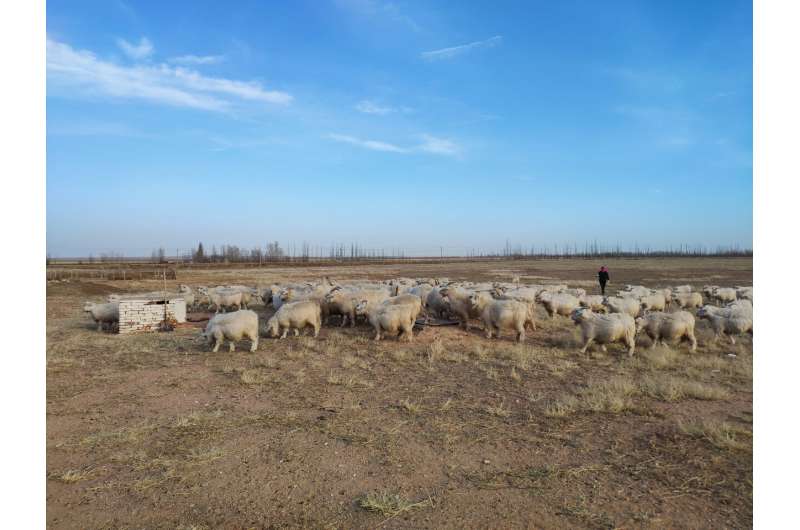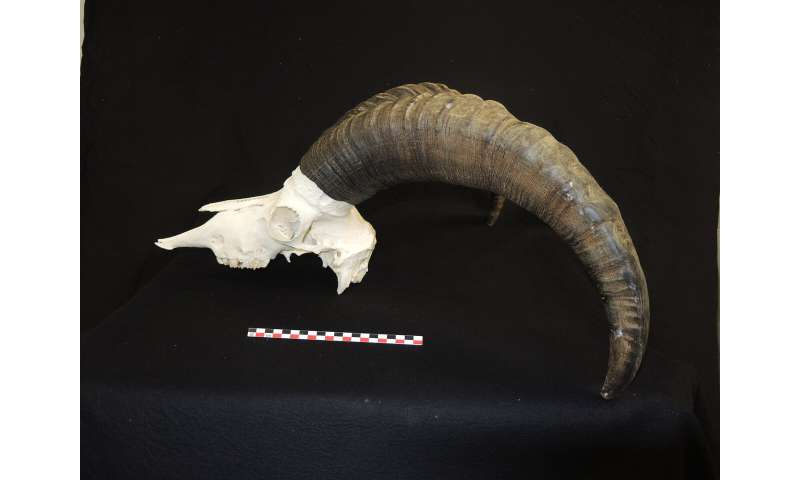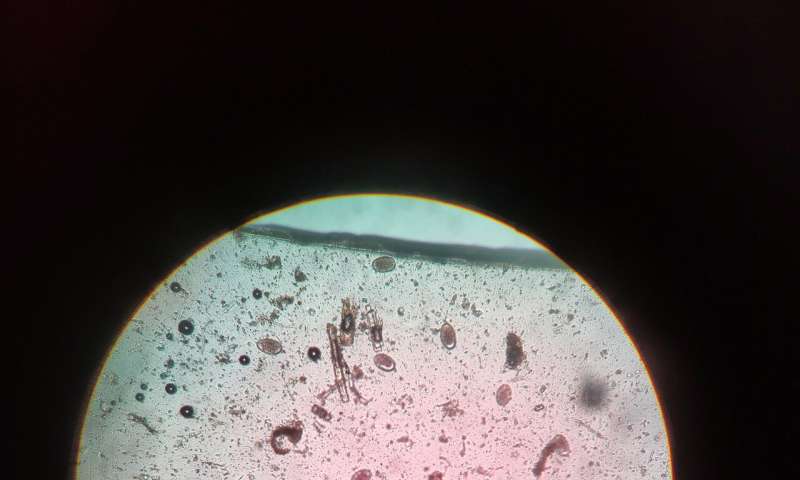May 21, 2020 report
Genetic study suggests domestic goats got pathogen-resistant gene from wild relatives

An international team of researchers has found evidence that suggests wild relatives of domestic goats passed on a gene to their domesticated relatives that boosts their pathogen resistance. In their paper published in the journal Science Advances, the group describes their study of goat genetic history and what they learned from it.
As the researchers note, by providing a steady source of meat and milk, goat domestication played an important role in the advancement of agriculture, and from there, the development of civilizations. But they also note that it is still not clear what sort of genetic changes domestic goats may have undergone that allowed them to become such a successful domesticated animal. In this new effort, the researchers sought to learn more about such changes by studying the genes of both modern and ancient species.
The work involved analyzing the genes of 164 modern domestic goats, 24 modern wild goats, 52 ancient goats and four ancient wild goats from different parts of the world. As part of their analysis, they sequenced all the samples and also carried out a demographic analysis of each as a means of isolating genes that were passed between different species.
The researchers found that modern domestic goats got a lot of gene segments from wild mountain goats. And one gene in particular, from a West Caucasian tur-like species, appears to have given modern goats an immune boost. The gene transfer was calculated to have occurred approximately 7,200 years ago, and it helped domesticated goats ward off a pathogen that interferes with digestion. The wild goat was believed to have lived in a subtropical environment where it had adapted to the pathogens found there. The researchers report that almost every species of modern goat has the gene—it codes for a protein produced in the lining of the gut. Testing showed that the few modern species that do not have the gene are more susceptible to infestations of nematode worm eggs.
The researchers conclude by suggesting that successful domestication of goats appears to have more to do with genetic additions that warded off pathogens in crowded conditions than for increased milk production.
-

Capra caucasica horn and skull morphology. Credit: Joséphine Lesur, Muséum National d’Histoire Naturelle -

Gastrointestinal nematode parasite egg. Credit: Yu Zhang, Northwest A&F University
More information: Zhuqing Zheng et al. The origin of domestication genes in goats, Science Advances (2020). DOI: 10.1126/sciadv.aaz5216
Journal information: Science Advances
© 2020 Science X Network



















